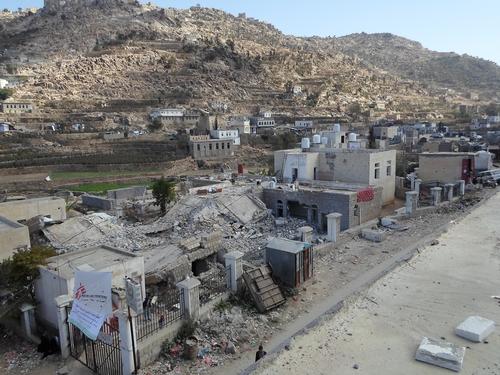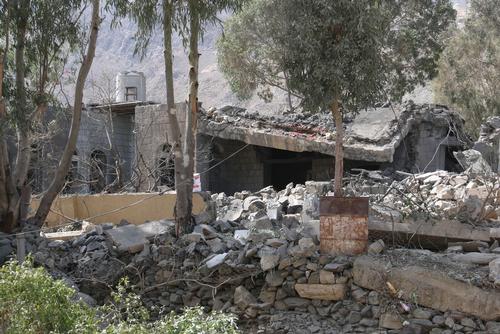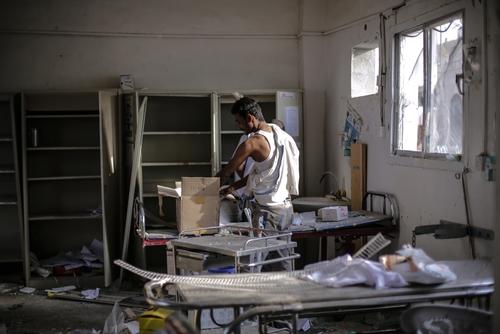Two months into the ceasefire in Yemen civilians continue to be severely affected by violence. Since the ceasefire started in April, MSF facilities and supported hospitals treated a staggering 1,624 people with injuries caused by the intense fighting in Taiz. Nearly half of them are civilians.
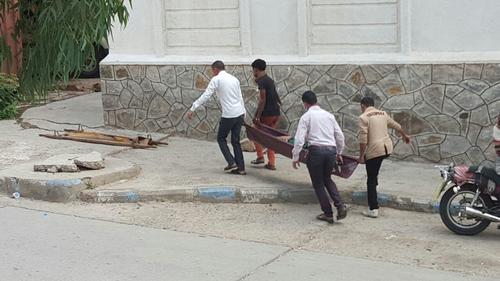
Taiz has seen some of the fiercest fighting since the escalation of the conflict began 15 months ago, with shelling, airstrikes, bomb blasts, landmine explosions and sniper fire happening every day. Fighting and shelling takes place in densely populated parts of the city. None of the warring parties appear to be making an effort to prevent casualties among civilians.
“On 3 June we received 122 wounded in our supported facilities, the majority coming as a result of a missile which hit a crowded market in Taiz,” says Salah Dongu’du, MSF project coordinator in Taiz. “A further twelve people were dead on arrival or wounded so seriously that they died soon after arriving at the emergency room. The vast majority were for sure civilians. The next day a further 135 people came in with war-wounds. There is simply no let-up in the violence.”
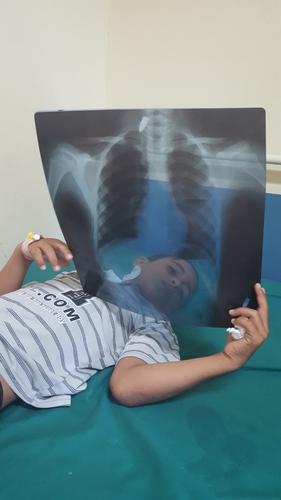
No matter where in the city, the impact on residents is felt by all, with people losing family members, homes and livelihoods and living in constant fear with no choice than to just go on with their lives. Meanwhile the humanitarian situation continues to deteriorate. People’s access to healthcare is severely limited, there is no electricity, the streets are piled with rubbish, and food and other commodities are only available at inflated prices.
“Recently I walked into one of the emergency rooms where our teams are working,” says MSF head of mission Will Turner. “In front of me were two young children lying in beds next to each other. The boy had been hit by a bullet in the neck as he left the mosque; the girl next to him had her stomach ripped open by a bullet as she waited to collect water. Such tragic stories occur on a daily basis in Taiz. This is totally unacceptable.”
MSF calls on all warring parties in Yemen to take far greater measures to protect civilians and calls for all actors whether they are participating at the peace talks in Kuwait or not, to reduce the intense level of conflict and facilitate at all times un-restricted humanitarian access in Taiz.
As an impartial and neutral medical humanitarian organisation, MSF supports and runs 30 hospitals in 8 governorates across Yemen, treating people irrespective of their religious, tribal, political or military affiliations. More than forty thousand war-wounded patients have been treated in MSF-supported hospitals across Yemen since March 2015.



